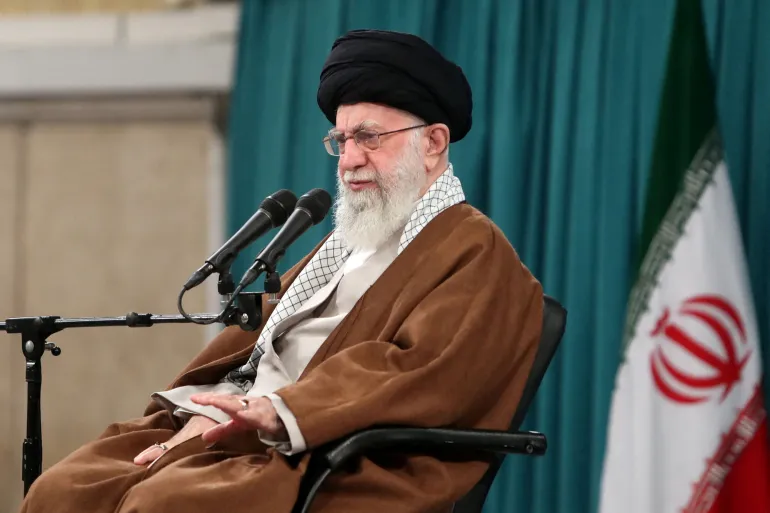IN the shadowy corridors of Tehran’s power, the assassination of Hamas leader Ismail Haniyeh at the end of July – widely believed to have been carried out by Israel – shattered a fragile equilibrium.
The timing of this escalation in the longstanding conflict between Iran and Israel could not have been worse, with newly sworn-in President Masoud Pezeshkian still getting used to his role when this geopolitical fireball was hurled into his lap.
For Iran’s Supreme Leader Ayatollah Ali Khamenei, the assassination of the Palestinian group’s leader was more than a provocation, it was an existential challenge.
The explosion that killed Haniyeh, which Iran believed was a missile launched from within its own borders, was a breach of sovereignty that angered Tehran and put Khamenei’s 2003 fatwa prohibiting the manufacture, use and storage of nuclear weapons under increased scrutiny.
The high-level debate over whether Khamenei’s fatwa on nuclear weapons served Iran’s strategic priorities was already continuing prior to Haniyeh’s assassination, according to a senior Iranian official who spoke to Al Jazeera on condition of anonymity.
Khamenei has steered Iran through global shifts from the Cold War’s end to the rise of United States unipolarity and conflicts in Afghanistan, Iraq, and Syria – and through the fraught history of Iran’s nuclear deal with world powers.
Now, at 85, he needs to secure the future of the Islamic republic, a critical juncture that requires more than manoeuvres in the “grey zone” – the space between war and peace that Iran has traditionally used to exert pressure on its adversaries.
The implications could reshape the Middle East’s strategic landscape at a time when negotiators are scrambling to reach a ceasefire deal that would end Israel’s brutal war on Gaza and, three weeks after the assassination, Iran has yet to indicate what it will do.
Asked whether Iran is withholding its attack on the Israeli regime so ceasefire talks can proceed, Iran’s permanent representative to the United Nations, Amir Saeid Iravani, told Al Jazeera: “The timing … of Iran’s response will be meticulously orchestrated to ensure that it occurs at a moment of maximum surprise.”
The assassination prompted intense debate in Iran, sources told Al Jazeera, with some arguing restraint as the wisest course, fearing a retaliatory strike could plunge Iran into a protracted and costly confrontation with Israel, which could weaken Tehran and its regional allies.
The restraint camp – from across Iran’s political spectrum – also expressed hope that calm now can serve as leverage in future negotiations with the US, potentially opening a new chapter in US-Iran relations and becoming a more potent response to Netanyahu’s provocations.







